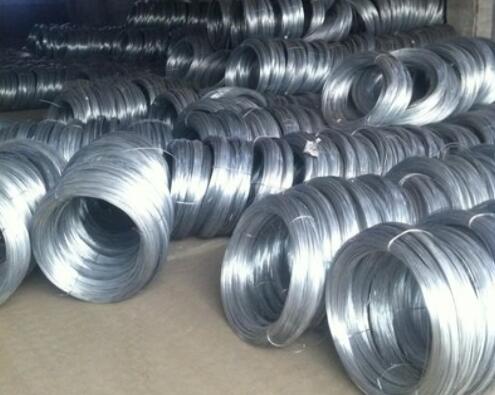Understanding 16 Gauge Black Annealed Tie Wire Properties, Uses, and Advantages
When it comes to construction and various DIY projects, the choice of materials plays a critical role in determining the durability and effectiveness of the final product. Among the many materials used in construction, tie wire is often overlooked, yet it serves as an essential component in reinforcing structures. One of the most popular choices is 16 gauge black annealed tie wire. This article will delve into the properties, uses, and advantages of this versatile material.
What is 16 Gauge Black Annealed Tie Wire?
The term gauge refers to the thickness of the wire, and in this case, 16 gauge indicates that it has a diameter of approximately 1.29 mm (0.0508 inches). The black annealed aspect refers to the wire's finish and treatment process. During annealing, the wire is heated and then cooled in a controlled environment, which softens the metal, improves its malleability, and enhances its resistance to breaking. The black finish is a result of the oxidation that occurs during this process, which not only gives the wire its distinctive appearance but also provides a degree of corrosion resistance in dry environments.
Properties of 16 Gauge Black Annealed Tie Wire
One of the defining characteristics of 16 gauge black annealed tie wire is its superior flexibility and tensile strength. The annealing process significantly reduces brittleness, allowing the wire to bend and maintain its shape without breaking. This makes it an ideal choice for various applications where malleability is crucial. Additionally, its inherent strength ensures that it can withstand tension, making it suitable for tying rebar and other structural elements.
The wire's black finish provides not only aesthetic qualities but also functional benefits. The coating offers a degree of protection against rust in specific environments, although it is always advisable to consider the surrounding conditions where the wire will be used. For outdoor applications or in areas with high moisture levels, additional protective coatings may be necessary.
Uses of 16 Gauge Black Annealed Tie Wire
16 gauge black annealed tie wire

The applications of 16 gauge black annealed tie wire are extensive. It is most commonly used in the construction industry for tying rebar in concrete structures. By holding the rebar in place, it ensures that the concrete maintains structural integrity as it cures. This wire is also used to bind together metal components and other building materials, making it a staple in both commercial and residential construction.
Beyond construction, tie wire finds utility in the agricultural sector, where it is used for binding plants and securing fencing. Gardeners often use it to support climbing plants or create structures that facilitate plant growth. Its versatility makes it a valuable tool for any gardener or farmer.
Advantages of Using 16 Gauge Black Annealed Tie Wire
There are several advantages to using 16 gauge black annealed tie wire. Its combination of flexibility and strength allows it to be easily handled and manipulated, making it user-friendly for both professionals and DIY enthusiasts. Additionally, the cost-effectiveness of this material offers significant savings, particularly for larger projects that require substantial quantities.
Moreover, the wire's ability to resist breakage during the tying process reduces waste and enhances overall efficiency on job sites. Lastly, easy storage and transportation are added benefits, as the wire can be coiled and stored compactly until needed.
Conclusion
In summary, 16 gauge black annealed tie wire is a fundamental yet often underestimated material in construction and agriculture. Its properties make it highly versatile, while its applications are wide-ranging. Whether you are a contractor looking for reliable materials or a homeowner embarking on a DIY project, 16 gauge black annealed tie wire is undoubtedly a wise choice that combines performance, flexibility, and cost-effectiveness.

















